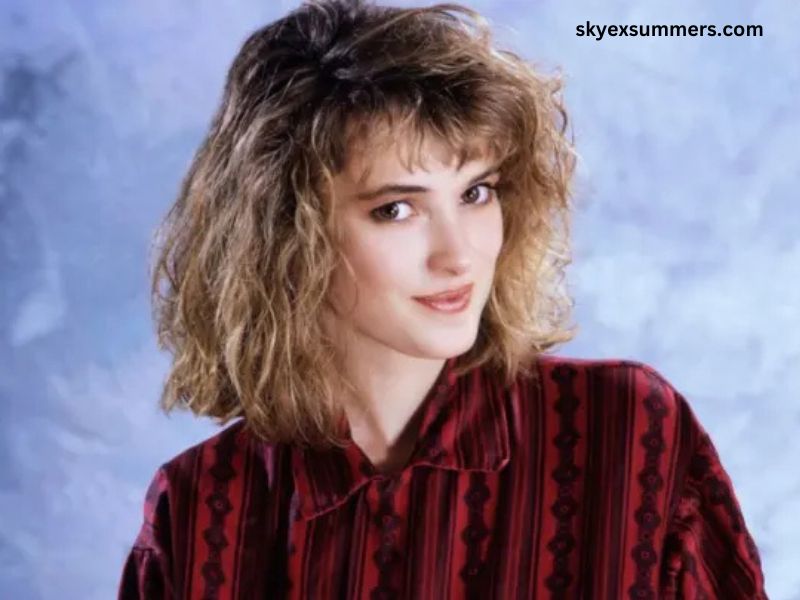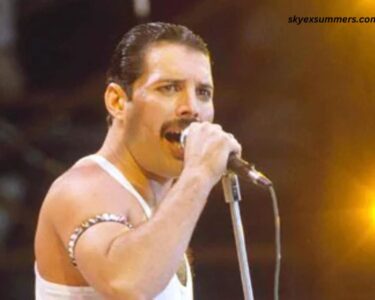When we think of the 1988 cult classic Beetlejuice, one of the first things that often comes to mind is the quirky, gothic character of Lydia Deetz, played by none other than Winona Ryder. As one of her most iconic roles, Beetlejuice remains a memorable part of Ryder’s illustrious career. But have you ever wondered how old was Winona Ryder in Beetlejuice? In this article, we will explore the actress’s age at the time of filming, the significance of her role, and how Beetlejuice helped catapult her into stardom.
How Old Was Winona Ryder in Beetlejuice?
Winona Ryder was born on October 29, 1971, which makes her 16 years old when she starred as Lydia Deetz in Beetlejuice, a film released in 1988. At the time of filming, Ryder was just a teenager, bringing a unique mix of youthful energy and goth sensibility to the role of the angsty and misunderstood teenage girl. Despite her age, Ryder’s portrayal of Lydia captured the hearts of audiences, and her performance became an integral part of the film’s success.
Ryder’s early success in Beetlejuice was just the beginning of a remarkable career, cementing her status as one of the most talented actresses of her generation. Her experience on set, combined with her natural ability to embody the essence of her characters, allowed her to shine despite her young age.
The Plot of Beetlejuice and Lydia Deetz’s Role
To understand the significance of Winona Ryder’s age during the production of Beetlejuice, it’s essential to first take a look at her character in the film. Beetlejuice, directed by Tim Burton, follows the story of a recently-deceased couple, Adam and Barbara Maitland (played by Alec Baldwin and Geena Davis), who are trying to haunt their home and scare away the new owners, the Deetz family. Lydia Deetz, played by Winona Ryder, is the dark and rebellious daughter of Charles and Delia Deetz (played by Jeffrey Jones and Catherine O’Hara).
Lydia, a teenager with a fascination for the macabre, quickly becomes the focal point of the story, especially after she discovers the Maitlands’ ghostly presence. While the plot revolves around the antics of the mischievous bio-exorcist, Beetlejuice (played by Michael Keaton), Lydia’s character plays a critical role in the film’s themes of life, death, and self-identity. Ryder’s portrayal of Lydia captured a perfect blend of teen angst and a quirky, offbeat charm that resonated with audiences, particularly young viewers.
The Impact of Lydia Deetz and Winona Ryder’s Performance
One of the reasons Beetlejuice became such a beloved film is because of Winona Ryder’s performance as Lydia Deetz. At just 16, Ryder brought a level of maturity and nuance to the character that many adult actors would struggle to achieve. Her portrayal of Lydia wasn’t just that of a typical goth teenager but someone who was dealing with very real emotions, such as alienation, loss, and a desire to find a place where she truly belonged.
Ryder’s ability to convey a sense of melancholy, while still embracing the film’s dark comedic elements, made Lydia Deetz a character with depth and relatability. She was the perfect juxtaposition to the chaotic and comedic antics of Beetlejuice himself, and her chemistry with the other cast members helped elevate the film’s charm.
The Legacy of Beetlejuice and Winona Ryder’s Career
While Beetlejuice helped establish Winona Ryder as a rising star in Hollywood, it wasn’t the only film that showcased her talent. Following the success of Beetlejuice, Ryder went on to star in numerous critically acclaimed films, such as Heathers (1989), Edward Scissorhands (1990), and Little Women (1994). These roles further cemented her as one of the most respected actresses of the 1990s, known for her ability to take on complex, multi-dimensional characters.
The film also marked the beginning of a long-lasting relationship between Ryder and Tim Burton, as she would go on to collaborate with the director on Edward Scissorhands, another cult classic. Her partnership with Burton helped shape her career, as her unique blend of quirky, gothic sensibility was a perfect fit for his imaginative and eccentric filmmaking style.
The Making of Beetlejuice and Behind the Scenes
Filming Beetlejuice was no easy task. Directed by Tim Burton, the film was noted for its unique visual style, eccentric sets, and dark humor. Ryder, at just 16 years old, was thrust into a world of imaginative set designs, eccentric characters, and complex storytelling. Her role in the film required not only emotional depth but also the ability to interact with fantastical elements, including talking sandworms, the Beetlejuice character, and a world full of bizarre and supernatural elements.
Ryder’s natural ability to stay grounded amidst the absurdity of the film is one of the reasons Beetlejuice still stands the test of time. Her chemistry with Michael Keaton’s chaotic Beetlejuice was key to the film’s success. Despite the larger-than-life antics of Beetlejuice himself, Lydia remained a more subdued, relatable character, which helped anchor the film’s narrative and themes.
Winona Ryder’s Age and Its Influence on Her Career
Winona Ryder’s age during the filming of Beetlejuice is a testament to the fact that talent knows no age limits. Although she was just 16 years old when she appeared in the film, her performance was mature and layered, demonstrating a depth of acting skill that many adult actors would envy. It’s clear that Ryder had a natural ability to slip into complex roles from a young age, making her a standout in Hollywood from the start of her career.
Her age during the filming of Beetlejuice also played a key role in how she was perceived by audiences. As a teenager, Ryder was able to embody the spirit of a misunderstood and rebellious young person, which made Lydia an iconic figure for many young viewers. Her portrayal of Lydia was not just an acting performance but a reflection of the struggles that many teenagers face in finding their identity and place in the world.
The Cultural Impact of Lydia Deetz
Lydia Deetz became an instant icon, largely due to Winona Ryder’s performance. As a goth teen in the 1980s, Lydia’s style—complete with dark clothing, a penchant for the macabre, and a sarcastic attitude—resonated with a generation of young people who were beginning to embrace alternative fashion and music. Her character represented the outcast, the misfit, and the individual who didn’t conform to societal expectations, making her a figure that many teenagers could relate to.
Ryder’s performance, coupled with her distinctive appearance in the film, helped solidify Lydia as a timeless character in popular culture. Decades after Beetlejuice was released, fans continue to celebrate Lydia’s style and attitude, and Ryder’s portrayal of her remains one of the most beloved performances of her career.
Winona Ryder’s Legacy and Beetlejuice’s Continued Popularity
Even though Winona Ryder’s role as Lydia Deetz occurred at a young age, the impact of her performance in Beetlejuice continues to be felt today. The film’s enduring popularity, bolstered by its 1980s charm and unique characters, has led to continued interest in Ryder’s career and the role of Lydia Deetz. Over the years, Beetlejuice has been revisited through merchandise, fan conventions, and even a Broadway musical adaptation, ensuring that Ryder’s portrayal of Lydia remains part of the cultural conversation.
In addition to her acting career, Ryder’s legacy has been defined by her role in Beetlejuice. She remains a beloved figure in Hollywood, known for her versatility and iconic roles, and Beetlejuice stands as one of her most beloved films.
Conclusion
In summary, Winona Ryder was just 16 years old when she starred as Lydia Deetz in Beetlejuice, and her performance has become one of the most iconic in film history. Despite her youth, Ryder’s portrayal of the angsty, goth teenager was filled with depth, emotion, and a sense of individuality that resonated with audiences across generations. Beetlejuice not only marked a pivotal moment in Ryder’s career but also solidified her status as an enduring cultural figure. To this day, her portrayal of Lydia Deetz remains a defining aspect of Beetlejuice and her legacy in Hollywood.



